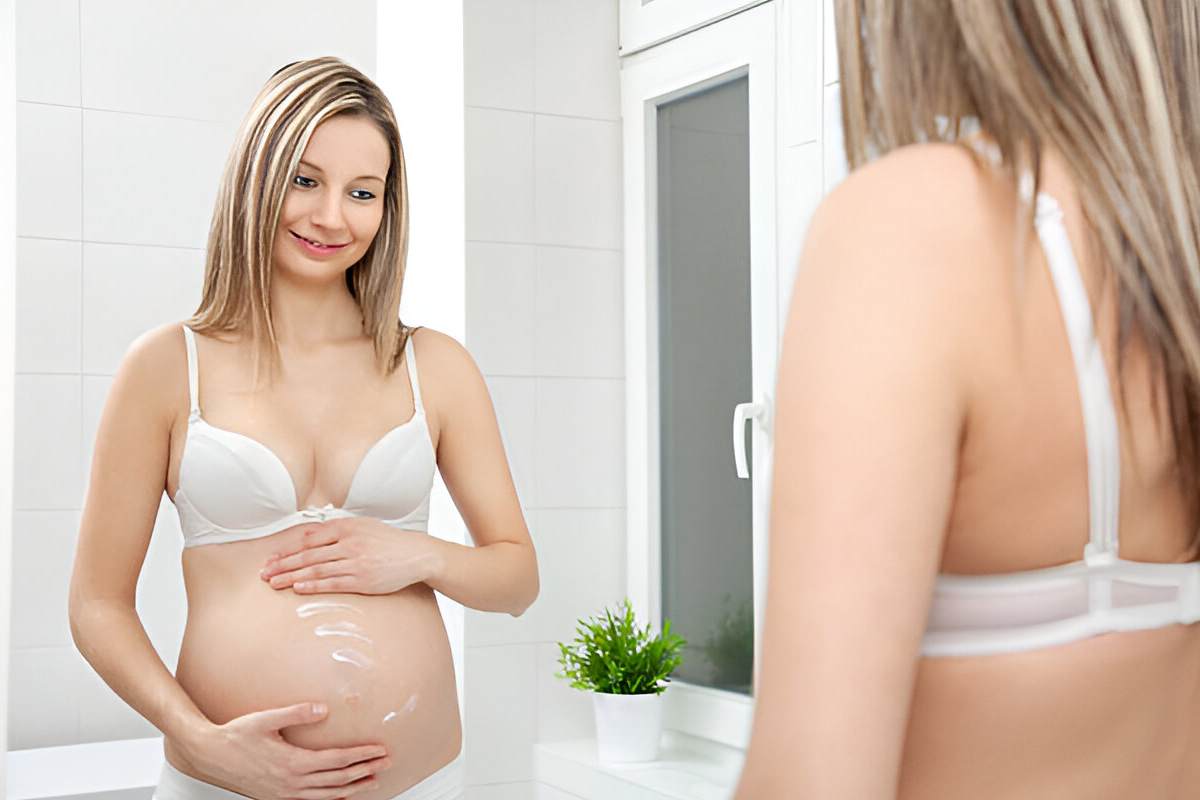Table of Contents
Introduction
Pregnancy Skincare – Many skincare products are not suitable for pregnant women, which can compensate for by safe alternatives. Learn with us the most prominent information about caring for pregnant skin.
Many pregnant women are aware of the impact of food, drink and certain medications on fetal health, but many do not take products on the skin into account
Therefore, it is essential to know that some products on the skin can enter the body and cross the placenta, affecting the fetus’s health.
Pregnant women should reconsider their daily skincare routine and use safe products to treat new skin problems they may face during this period.
Skin Problems During Pregnancy And How To Treat Them
The pregnant woman has many skin problems, and you should consult your doctor in choosing safe and effective treatments, including:
1. Acne
Common skin problems during pregnancy, especially the appearance of acne around the mouth and chin, if not treated, can last the length of pregnancy, even after birth.
Sulfur-based products can be used topically or resort to home peeling treatments; if they do not work, you can also erythromycin cream.
2. Melasma
Or so-called pregnancy masks can develop due to pregnancy hormones or frequent exposure to sunlight.
Some pregnant women may also suffer from melasma appearing in areas around the nipples or between the thighs. The melasma problem can alleviate by avoiding sun exposure, applying a safe sunscreen for pregnancy, and topical vitamin c products.
3. Stretch Marks
You can treat it with skin creams that prevent stretch marks from appearing provided they are safe during pregnancy, and natural substances such as cocoa butter can use.
Skincare Products Recommended Being Avoided For Pregnant Women
When taking care of pregnant skin, it recommends to avoid products that contain these substances:
1. Retinoid
Also called tretinoins, a type of vitamin a that causes congenital disabilities of the fetus, retinoids can be found in:
Pigmentation treatments.
Anti-ageing moisturizers.
Acne treatments.
Plaque psoriasis treatments.
2. Hydroxy Acids
In Pregnancy Skincare, skin treatments and several skin detergents, toner and exfoliators, examples of these acids are:
Beta hydroxy acid (BAH): The most famous of its types is cellulosic acid.
Alpha hydroxy acid (AHAs): the most famous glycolic acid, lactic acid.
3. Hydroquinone
Hydroquinone is used to lighten the skin and treat pigmentation, which is likely to cause congenital disabilities in the fetus, so it recommends to avoid using it.
4. Phthalates
Most commonly found in cosmetics and possibly some personal care products, a study indicated a link between hormonal reproductive dysfunction and phthalate exposure.
5. Formaldehyde
It rarely uses as a preservative or disinfectant as a carcinogen, but some substances in cosmetics can release formaldehyde, such as brnobol, hydroxy- like glycinate, etc.
6. Oxybenzone And Its Derivatives
Found in sunscreens, which can affect hormones and cause damage to the mother and fetus, a study on animals have suggested that exposure to oxybenzone in average amounts used by humans can cause permanent changes in the mother’s mammary glands.
It has also been linked to permanent fetal damage and the development of neurological conditions in adulthood, such as Alzheimer’s.
Tips For Pregnancy Skincare
Includes:
In Pregnancy Skincare, Be careful to use a safe sunscreen for the holder, and avoid exposure to direct sunlight.
It recommends using light soap. And also, moisturizer and avoid rubbing your body with it daily.
Keep your body clean in a daily shower as sweating and feeling hot during pregnancy increase.
Follow-up with your dermatologist regularly if you have a skin condition such as eczema or psoriasis.
Therefore, Sleep adequately and comfortably, as sleep helps keep the skin healthy.

